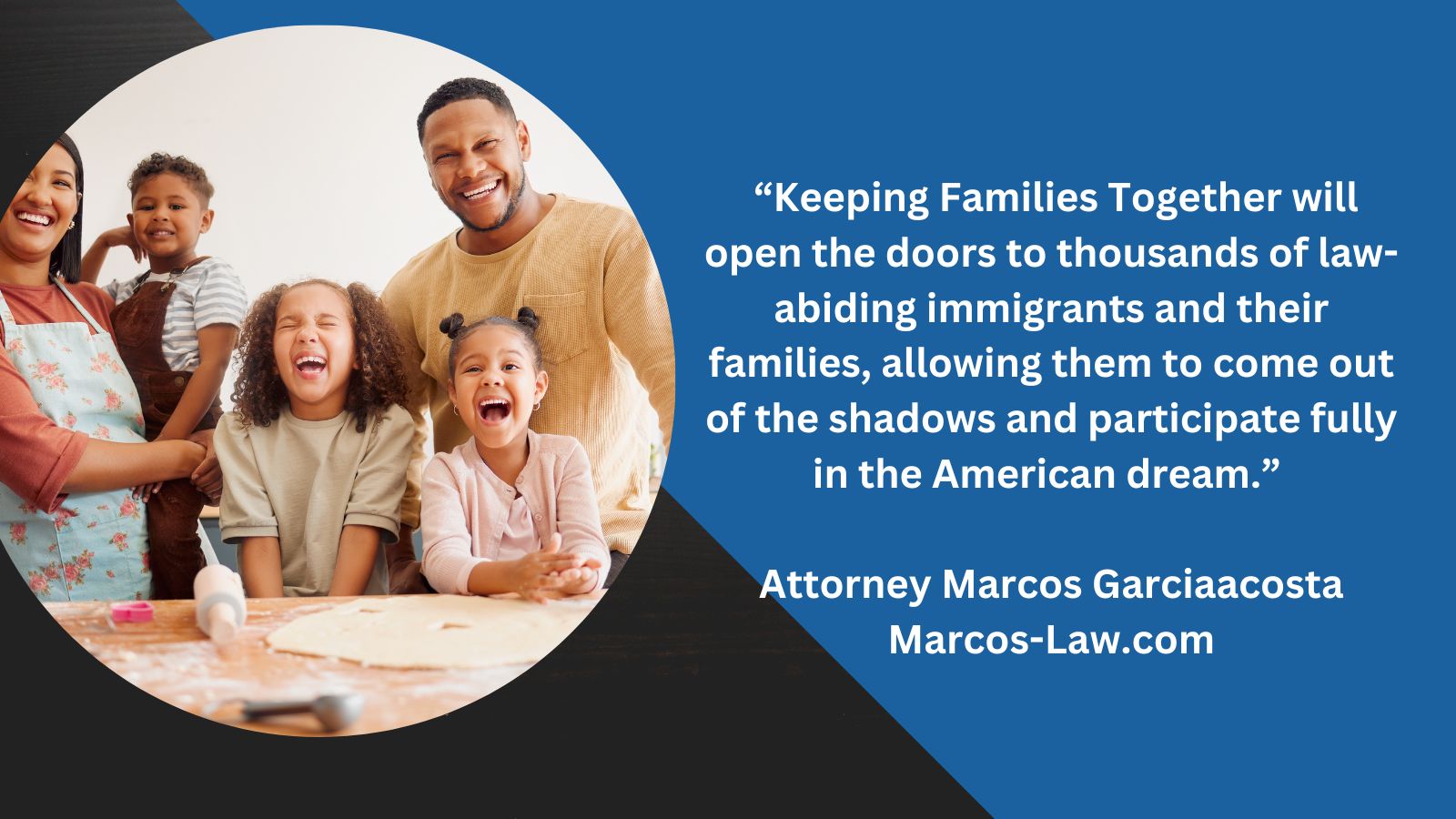The Biden Administration has released the guidelines for an expanded Parole in Place (PIP) program called Keeping Families Together (“KFT”). The program aims to facilitate family togetherness and provide an administrative path of legalization focusing on longtime undocumented residents of the USA.
This program, announced on June 18th, 2024, will provide temporary legal status, work authorization, and potential permanent residency to undocumented immigrants who fulfill specific requirements.
The requirements are marriage to a U.S. citizen or being children or stepchildren of a U.S. citizen. Keeping Families Together benefits those who came to the country without inspection and, therefore, are undocumented but are close relatives of US citizens and have a long presence in the community.
Who is Eligible?
Here is the list of eligibility conditions:
- Be present in the U.S without admission or parole
- Have been continuously present in the U.S. for at least ten (10) years as of June 17, 2024
- Have a legally valid marriage to a U.S. citizen as of June 17, 2024, or be the child or step-child of a US citizen
- Not have a disqualifying criminal history or otherwise constitute a threat to national security or public safety
- Otherwise, be eligible for adjustment of status to LPR status
The outcome of the process will be at the government’s discretion. All applications will consider the applicant’s prior criminal and immigration history. Additionally, applicants will be subjected to background checks, national security and public safety vetting information, and any other relevant information available requested by USCIS.
On average, those eligible for this process have resided in the U.S. for 23 years.
According to the White House portal, this action will protect approximately half a million spouses of U.S. citizens and approximately 50,000 noncitizen children under the age of 21 whose parent is married to a U.S. citizen.
Before this announcement, U.S. citizens would petition their spouses and children by filing the I-130 form. Still, these undocumented beneficiaries needed to leave the country to apply for permanent residency after the approval of the I-130 form. This last step entailed the risk of leaving the country and potentially being denied entry, causing separation of months or even years. Keep Families Together allows Citizens to petition their spouses and stepchildren within the USA, avoiding further risk, time, and expenses. Additionally, this process will reduce the traffic of applicants into American Consulates abroad and waivers/pardons applications to USCIS.
Keeping Families Together
On Monday, August 19th, 2024, USCIS will start accepting requests for Keeping Families Together using a new electronic form, I-131F, called Application for Parole in Place for Certain Noncitizens Spouses and Stepchildren of U.S. Citizens. USCIS has published a guideline, which you can read here.
This type of relief is not new. In the past, USCIS has provided family unification opportunities to certain close relatives of qualifying military members and veterans (Military PIP) despite Republican opposition. In 2020, Congress passed legislation confirming the executive branch’s PIP authority to support military families.
“These groundbreaking Keeping Families Together program will open the doors to thousands of law-abiding immigrants and their families,” said Attorney Marcos E. Garciaacosta, “allowing them to come out of the shadows and participate fully in the American dream.”
Note that these are new rules that have just started being implemented. All applications for this relief will be online, not on paper. You’ll need to contact an attorney to understand your options better.
Attorney Marcos E. Garciaacosta
We recommend seeking assistance from a qualified immigration attorney such as Marcos E. Garciaacosta, Esq.
Avoid “notaries,” document preparers, and other nonauthorized people since only an attorney admitted to practice law in the United States or an accredited representative working for a Department of Justice-recognized organization can give you legal advice on immigration matters.
You can call us for a consultation with Attorney Marcos at (480) 324-6378.
